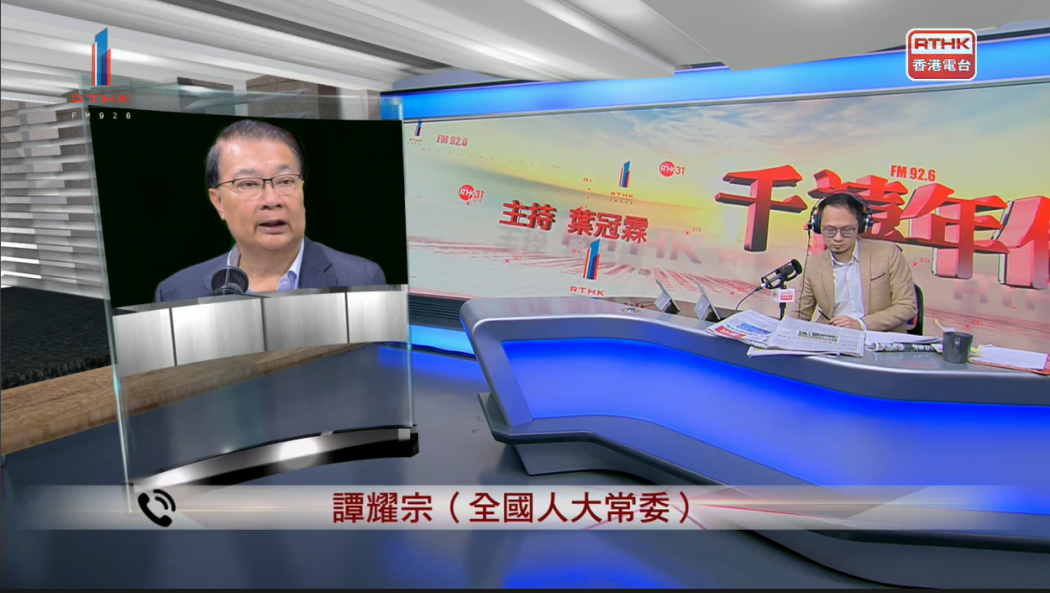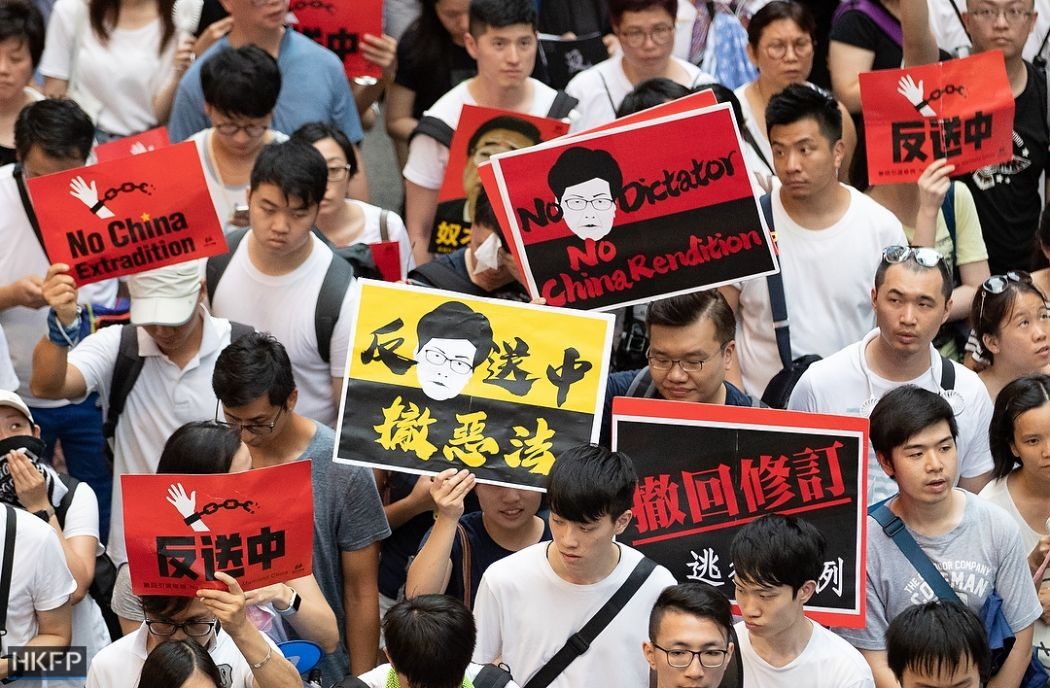Hong Kong pro-Beijing figure Tam Yiu-chung has said that people accused of violating the looming national security legislation could be extradited to the mainland for trial.
Speaking on RTHK programme Millennium on Wednesday, the member of the Standing Committee of the National People’s Congress (NPC) said cases that involve diplomatic matters – such as “foreign interference” in Hong Kong affairs – could be among the “extremely rare and serious” cases that China will have jurisdiction over.

Tam’s remarks came after Deng Zhonghua, deputy head of the Hong Kong and Macau Affairs Office, said on Monday that the local authorities and police will carry out most of the enforcement duties of the national security legislation. But when it comes to cases that “seriously threaten” Chinese national security, Deng said the central authorities should reserve jurisdiction.
Tam said China’s jurisdiction would cover legislation, law enforcement and judicial power. When asked if suspects could be transferred across the border for trial, Tam said it was possible.
“If the central authorities think it is necessary [for people to be extradited to China] and [the case] should not be handled by Hong Kong courts… that is also an option. But it depends on how the Central Government exercises its power,” Tam said.
On Tuesday, China’s top legislature announced plans to speed up the formulation of laws that would punish secession, subversion, terrorism and foreign interference in the city. Although the draft legislation was not mentioned in the agenda of the 19th session of the Standing Committee of the 13th NPC, Tam said the NPCSC has the power to call for additional meetings.

Last June, large-scale protests broke out in Hong Kong over a now-axed extradition bill, which would have allowed fugitive transfers the mainland. They escalated into sometimes violent displays of dissent against police behaviour, amid calls for democracy and anger over Beijing’s encroachment.
‘The end’
Pro-democracy activist Joshua Wong slammed Tam’s comments as “marking the end” of the One Country, Two Systems framework and the city’s judicial independence.
On Twitter, the Demosisto secretary-general accused Beijing of having “exclusive power” to decide what cases could be managed by Chinese courts, saying that such a move would pose threat to civil society groups and the Hong Kong business sector.
“It’s just the stepping stone for more interference from Beijing. Through the same top-down mechanism, Beijing can impose its cybersecurity law, censorship regimes & social credit system upon HK. I call upon the world to stand with HK and urge China to withdraw this evil law,” Wong wrote.
Lee: Extradition plans ‘hijacked’
Hong Kong’s security chief John Lee told Ming Pao on Wednesday that it was “unrealistic” to discuss whether Hongkongers could be extradited to China, when clauses of the legislation are yet to be publicised.
Lee also reflected on the year-long unrest, saying the proposed amendment – which he said was intended to solve a murder case in Taiwan with 19-year-old Hong Kong resident Chan Tong-kai killing his pregnant girlfriend Poon – was “hijacked by political ends beyond imagination.”

“Hong Kong has given up on its moral bottom line. I believe such violence was unpredictable 12 months ago. Society even silently approves and justifies violence – this is beyond anyone’s imagination,” Lee said.
He added that Hong Kong should focus on solving issues that endanger national security, and let peace return to the city.
